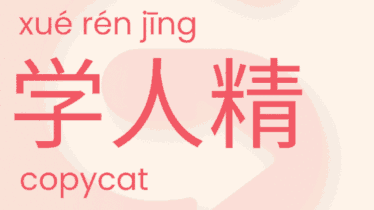How to Say Thank You in Chinese
Hey there! Are you curious about how to say “thank you” in Chinese? Well, you’re in the right place!
Gratitude holds immense importance in Chinese culture, and knowing how to say “thank you” appropriately can help you navigate social interactions with grace and respect. So, let’s get started and discover the different expressions and gestures that will allow you to convey your appreciation in spoken Chinese!
How to say thank you in Chinese?
Here is the overview of the various ways to say “thank you” in Chinese: 谢谢 (xièxiè) , 感谢 (gǎnxiè) , 多谢 (duōxiè), 非常感谢 (fēicháng gǎnxiè), 谢谢你 (xièxiè nǐ), 谢谢您 (xièxiè nín).
谢谢 (xièxiè) – common and widely used expression of gratitude
In Mandarin Chinese, “谢谢” (xièxiè) is a common and widely used expression of gratitude. It carries a polite and appreciative tone, and it is suitable for various situations, from casual to formal.
The first character, “谢” (xiè), means “to thank” or “to express gratitude.” It carries a positive connotation and is associated with appreciating and acknowledging someone’s kindness or assistance.
The second character, “谢” (xiè), is repeated, emphasizing the gratitude expressed. The repetition adds emphasis and amplifies the meaning of the term.
Together, “谢谢” (xièxiè) conveys a sincere and heartfelt appreciation. It is the go-to phrase for expressing thanks in Chinese and is often used in daily interactions with friends, family, colleagues, and strangers.
Dialogue:
A: 你好!我帮你拿包包。(Nǐ hǎo! Wǒ bāng nǐ ná bāobāo.) – Hello! Let me carry your bags.
B: 哇,谢谢你!(Wā, xièxiè nǐ!) – Wow, thank you!
A: 不客气。(Bù kèqì.) – You’re welcome.
感谢 (gǎnxiè) – a more formal and profound way to express appreciation
感谢 (gǎnxiè) is a Chinese term that translates to “thankfulness” or “gratitude” in English. It is a more formal and profound way to express appreciation compared to the commonly used “谢谢” (xièxiè).
The term 感谢 (gǎnxiè) consists of two Chinese characters:
感 (gǎn) – This character means “to feel” or “to sense.” It conveys the idea of experiencing an emotion or a deep sentiment. In the context of gratitude, 感 (gǎn) emphasizes the heartfelt and genuine nature of the appreciation being expressed.
谢 (xiè) – This character means “to thank” or “to express thanks.” It is the same character used in the more common expression “谢谢” (xièxiè). However, in 感谢 (gǎnxiè), it carries a more formal and elevated connotation.
When combined, 感谢 (gǎnxiè) represents a profound sense of gratitude. It signifies a sincere and deep appreciation for someone’s kindness, help, or generosity. This term is often used in more formal or serious situations, such as expressing gratitude in professional settings, formal occasions, or when receiving significant assistance.
Using 感谢 (gǎnxiè) shows a higher level of respect and gratitude, conveying a sense of sincere acknowledgement for the favor or support received.
Dialogue:
A: 你帮我解决了这个问题,真的太感谢你了!(Nǐ bāng wǒ jiějué le zhège wèntí, zhēn de tài gǎnxiè nǐ le!) – You helped me solve this problem. I’m really grateful to you!
B: 不用客气,我很乐意帮助你。(Bù yòng kèqì, wǒ hěn lèyì bāngzhù nǐ.) – You’re welcome. I’m happy to help you.
A: 你的帮助对我来说太重要了,再次感谢你!(Nǐ de bāngzhù duì wǒ lái shuō tài zhòngyào le, zàicì gǎnxiè nǐ!) – Your help means a lot to me. Thank you again!
多谢 (duōxiè)
“多谢” (duōxiè) is a phrase in Mandarin Chinese that is often used to express gratitude. Here’s an explanation of its meaning and usage:
Literally, “多谢” (duōxiè) is a combination of two characters:
- “多” (duō) means “many” or “much,” indicating a higher degree or intensity.
- “谢” (xiè) means “thanks” or “to thank.”
When combined, “多谢” (duōxiè) conveys a stronger and more heartfelt expression of gratitude compared to the standard “谢谢” (xièxiè).
The usage of “多谢” (duōxiè) is more common in spoken language and informal settings. It is often used in casual conversations among friends, family members, or close acquaintances to show appreciation for a favor, help, or kindness received.
Here are a few examples to illustrate the usage of “多谢” (duōxiè):
- A: “你帮我买了咖啡,多谢!” (Nǐ bāng wǒ mǎi le kāfēi, duōxiè!) – You bought coffee for me, thank you so much!
B: “不客气,我知道你喜欢喝咖啡。” (Bù kèqì, wǒ zhīdào nǐ xǐhuān hē kāfēi.) – You’re welcome. I know you like to drink coffee.
- A: “你陪我去医院看病,多谢啦!” (Nǐ péi wǒ qù yīyuàn kàn bìng, duōxiè la!) – Thank you for accompanying me to the hospital!
B: “没问题,朋友之间就是互相帮助的嘛。” (Méi wèntí, péngyǒu zhī jiān jiùshì hùxiāng bāngzhù de ma.) – No problem, friends should help each other.
非常感谢 (fēicháng gǎnxiè)
“非常感谢” (fēicháng gǎnxiè) is a Chinese phrase used to express deep gratitude or appreciation. Let’s break it down:
- “非常” (fēicháng) translates to “very” or “extremely,” indicating a high degree or intensity.
- “感谢” (gǎnxiè) means “thanks” or “to thank.”
When combined, “非常感谢” (fēicháng gǎnxiè) conveys an even stronger and more profound expression of gratitude compared to “谢谢” (xièxiè) or “多谢” (duōxiè).
The phrase is often used in situations where the level of gratitude is particularly significant, such as when someone goes above and beyond to help, or when a kind gesture has a profound impact.
Here are a couple of examples to illustrate the usage of “非常感谢” (fēicháng gǎnxiè):
- A: “你为我做了这么多,非常感谢你的帮助!” (Nǐ wèi wǒ zuò le zhème duō, fēicháng gǎnxiè nǐ de bāngzhù!) – You’ve done so much for me; I’m extremely grateful for your help!
B: “不用客气,我愿意帮助你。” (Bùyòng kèqì, wǒ yuànyì bāngzhù nǐ.) – You’re welcome. I’m willing to help you.
- A: “你的慷慨捐赠对我们的项目非常重要,我们非常感谢你的支持!” (Nǐ de kāngkǎi juānzèng duì wǒmen de xiàngmù fēicháng zhòngyào, wǒmen fēicháng gǎnxiè nǐ de zhīchí!) – Your generous donation is incredibly important to our project; we’re immensely grateful for your support!
B: “你们的工作很有价值,我很愿意支持。” (Nǐmen de gōngzuò hěn yǒu jiàzhí, wǒ hěn yuànyì zhīchí.) – Your work is valuable, and I’m happy to support.
谢谢你 (xièxiè nǐ)
“谢谢你” (xièxiè nǐ) is a Chinese phrase used to express gratitude or thanks to someone directly. Let’s break it down:
“谢谢” (xièxiè) is the common way to say “thank you” in Mandarin Chinese.
“你” (nǐ) means “you,” indicating that the gratitude is directed towards a specific person.
When combined, “谢谢你” (xièxiè nǐ) conveys a personal and direct expression of gratitude, thanking someone specifically for their actions, kindness, or assistance.
The phrase is commonly used in various social settings, whether formal or informal, to show appreciation to individuals for their help, support, or gestures of goodwill.
Here are a couple of examples to illustrate the usage of “谢谢你” (xièxiè nǐ):
A: “你帮我搬家,谢谢你!” (Nǐ bāng wǒ bānjiā, xièxiè nǐ!) – You helped me move; thank you!
B: “不用客气,朋友之间互相帮助是应该的。” (Bùyòng kèqì, péngyǒu zhījiān hùxiāng bāngzhù shì yīnggāi de.) – You’re welcome. Helping each other among friends is natural.
A: “你的建议对我的工作很有帮助,谢谢你的支持!” (Nǐ de jiànyì duì wǒ de gōngzuò hěn yǒu bāngzhù, xièxiè nǐ de zhīchí!) – Your suggestions have been very helpful to my work; thank you for your support!
B: “我很高兴能够帮到你,谢谢你的信任。” (Wǒ hěn gāoxìng nénggòu bāng dào nǐ, xièxiè nǐ de xìnrèn.) – I’m glad I could assist you; thank you for your trust.
“谢谢您” (xièxiè nín)
“谢谢您” (xièxiè nín) is a formal and respectful way to express gratitude or thanks to someone in Mandarin Chinese. Let’s break it down:
- “谢谢” (xièxiè) means “thank you” in Mandarin Chinese.
- “您” (nín) is a formal and respectful pronoun for “you,” indicating a higher level of politeness and deference.
When combined, “谢谢您” (xièxiè nín) conveys a more formal and respectful expression of gratitude, specifically directed towards someone of higher status, such as elders, superiors, or esteemed individuals.
The phrase is commonly used in formal or professional settings, as well as when showing respect and gratitude to individuals who deserve special acknowledgment.
Here are a couple of examples to illustrate the usage of “谢谢您” (xièxiè nín):
- A: “您的指导对我非常重要,谢谢您的慷慨帮助!” (Nín de zhǐdǎo duì wǒ fēicháng zhòngyào, xièxiè nín de kāngkǎi bāngzhù!) – Your guidance has been crucial to me; thank you for your generous help!
B: “不用客气,我很高兴能够帮助您。” (Bùyòng kèqì, wǒ hěn gāoxìng nénggòu bāngzhù nín.) – You’re welcome. I’m glad I could assist you.
- A: “谢谢您的光临,希望能再次为您服务。” (Xièxiè nín de guānglín, xīwàng néng zàicì wèi nín fúwù.) – Thank you for your visit; I hope to serve you again.
B: “谢谢您的热情款待,我度过了愉快的时光。” (Xièxiè nín de rèqíng kuǎndài, wǒ dùguò le yúkuài de shíguāng.) – Thank you for your warm hospitality; I had a delightful time.
Remember, expressing gratitude is an important aspect of Chinese culture, and using these phrases will help you build stronger connections with Chinese-speaking individuals. So go ahead and start incorporating these expressions into your conversations!
Next time someone helps you, does something kind, or shows support, don’t forget to say “谢谢” (xièxiè) or one of the other expressions we’ve covered. It will surely brighten their day and strengthen your relationship.
Read this post if you are interested in how to say good morning in Chinese. If you want to know how long does it take to learn Mandarin Chinese, Goeast also had this topic covered.
More Resources on Goeast Mandarin:
how to say happy new year in chinese?
Do All Chinese People Speak Mandarin? Putonghua VS Chinese Dialects
FAQ
Q: What is the most common way to say “thank you” in Chinese?
A: The most common way to say “thank you” in Chinese is “谢谢” (xièxiè).
Q: How do you pronounce “谢谢” (xièxiè)?
A: “谢谢” is pronounced as “shieh-shieh” in pinyin.
Q: Are there other ways to say “thank you” in Chinese?
A: Yes, besides “谢谢” (xièxiè), you can also say “多谢” (duōxiè), which has a slightly stronger tone of gratitude.
Q: How do you pronounce “多谢” (duōxiè)?
A: “多谢” is pronounced as “dwoh-shieh” in pinyin.
Q: Is there a more formal way to express gratitude in Chinese?
A: Yes, if you want to express gratitude in a formal and respectful manner, you can say “谢谢您” (xièxiè nín).
Q: How do you pronounce “谢谢您” (xièxiè nín)?
A: “谢谢您” is pronounced as “shieh-shieh neen” in pinyin.
Q: When should I use “非常感谢” (fēicháng gǎnxiè)?
A: You can use “非常感谢” to express deep gratitude or when you want to emphasize your appreciation for someone’s significant help or support.
Q: How do you pronounce “非常感谢” (fēicháng gǎnxiè)?
A: “非常感谢” is pronounced as “fay-chahng gahn-syeh” in pinyin.
Q: Can I use these phrases in both formal and informal situations?
A: Yes, “谢谢” (xièxiè) and “多谢” (duōxiè) can be used in both formal and informal settings, while “谢谢您” (xièxiè nín) and “非常感谢” (fēicháng gǎnxiè) are more suitable for formal situations.
Q: Are there any cultural considerations when expressing gratitude in Chinese?
A: Yes, in Chinese culture, it’s common to express gratitude and show appreciation. Using appropriate phrases like “谢谢” (xièxiè) or “谢谢您” (xièxiè nín) demonstrates politeness and respect.
Q: Is it necessary to bow or perform any gestures when saying “thank you” in Chinese?
A: While not necessary, a sincere smile and a nod of the head can accompany your words of gratitude, especially in more formal situations. However, a genuine “谢谢” (xièxiè) or other expressions will suffice in most cases.





